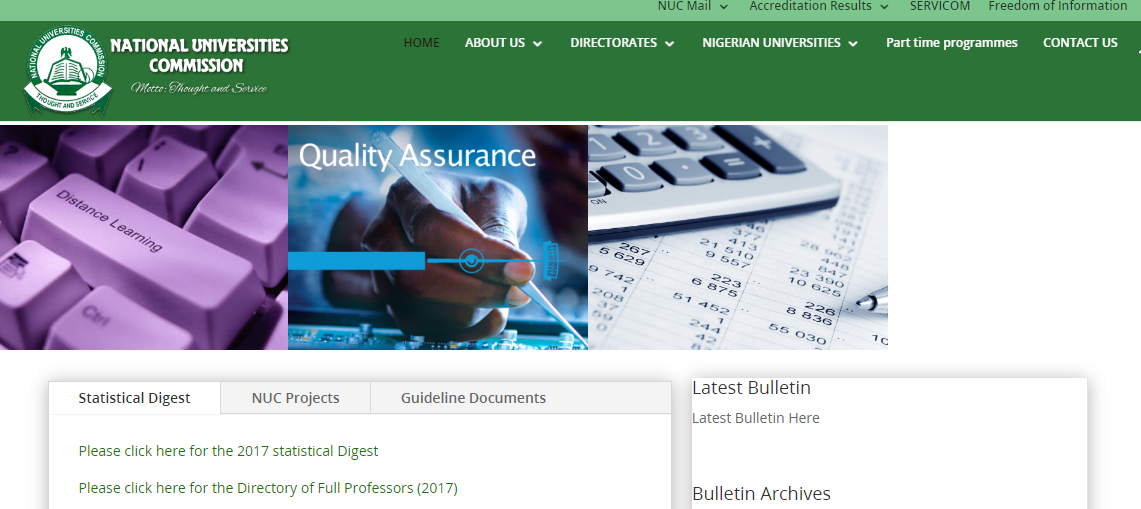Departments of Nursing Under Accreditation Process
Discover the rigorous journey of departments of nursing under accreditation process. Learn what it takes for nursing programs to earn their prestigious credentials, ensuring top-notch education for future healthcare professionals.
Introduction
Ever wondered what goes on behind the scenes to ensure nursing programs are top-notch? Let’s dive into the world of departments of nursing under accreditation process. It’s a rigorous, detailed, and sometimes nerve-wracking journey that ensures nursing students receive the highest quality education. From the ins and outs of the process to its significance, we’re peeling back the layers on what it takes to earn that gold seal of approval.
The Importance of Accreditation
Why Does Accreditation Matter?
Accreditation isn’t just a fancy word; it’s a critical marker of quality in nursing education. But why does it matter so much? Here are some key reasons:
- Quality Assurance: Accreditation ensures that nursing programs meet specific standards of excellence.
- Eligibility for Federal Aid: Only students enrolled in accredited programs can receive federal financial aid.
- Employment Opportunities: Graduates from accredited programs are preferred by employers.
- License to Practice: Many states require graduation from an accredited program to sit for the NCLEX-RN exam.
A Stamp of Approval
Accreditation serves as a stamp of approval that a nursing program meets or exceeds the necessary standards set by accrediting bodies. These standards cover everything from curriculum and faculty qualifications to clinical experiences and student outcomes. Without accreditation, a nursing program’s credibility and the value of its degrees can be significantly diminished.
The Accreditation Bodies
Who Are the Gatekeepers?
Several accrediting bodies are responsible for evaluating and accrediting nursing programs. The most prominent ones include:
- Accreditation Commission for Education in Nursing (ACEN): Focuses on practical, diploma, associate, baccalaureate, master’s, and clinical doctorate nursing programs.
- Commission on Collegiate Nursing Education (CCNE): Accredits baccalaureate, graduate, and residency programs in nursing.
- National League for Nursing Commission for Nursing Education Accreditation (NLN CNEA): Covers all types of nursing education programs.
Each of these bodies has its own set of standards and criteria, but all aim to ensure the highest level of nursing education.
Steps in the Accreditation Process
Step-by-Step Breakdown
The path to accreditation is long and winding. Here’s a step-by-step look at what departments of nursing undergo:
- Self-Assessment: The nursing department conducts a thorough self-assessment, evaluating its programs against accrediting body standards.
- Application Submission: An official application is submitted to the chosen accrediting body.
- Self-Study Report: The department prepares a detailed self-study report, showcasing compliance with standards and identifying areas for improvement.
- Site Visit: An accrediting team visits the campus to verify the information provided in the self-study report. This includes interviews with faculty, students, and administrators.
- Review and Decision: The accrediting body reviews all materials and site visit findings, then makes a decision. The program can be granted accreditation, probationary status, or denied.
- Continuous Improvement: Even after receiving accreditation, programs must continuously improve and submit periodic reports to maintain their status.
The Nitty-Gritty Details
During the site visit, accrediting teams leave no stone unturned. They observe classes, tour facilities, and scrutinize records. Faculty credentials are closely examined, and student feedback is gathered to ensure that the program not only meets but exceeds standards. This exhaustive evaluation guarantees that every aspect of the nursing education experience is top-notch.
Challenges and Hurdles
What Are the Common Pitfalls?
Accreditation isn’t a walk in the park. Nursing departments face several challenges along the way:
- Resource Allocation: Ensuring adequate resources—both financial and human—can be a major hurdle.
- Curriculum Updates: Keeping the curriculum current with evolving healthcare standards and practices requires constant effort.
- Faculty Development: Hiring and retaining qualified faculty is essential but often challenging.
- Data Collection: Gathering and analyzing data for the self-study report is a meticulous and time-consuming process.
Overcoming the Obstacles
Despite these challenges, many nursing departments successfully navigate the accreditation process. It requires dedication, teamwork, and a commitment to excellence. Departments often seek external consultants or join forces with other institutions to share best practices and resources.
The Impact on Students
What’s in It for the Students?
Students enrolled in accredited nursing programs reap numerous benefits:
- High-Quality Education: Accredited programs adhere to stringent standards, ensuring a robust and comprehensive education.
- Better Job Prospects: Employers prefer graduates from accredited programs, knowing they’ve received top-tier training.
- Eligibility for Advanced Programs: Graduates from accredited programs can pursue further education without barriers.
- Confidence and Trust: Students can trust that their education meets the highest standards, giving them confidence as they enter the workforce.
DEPARTMENTS OF NURSING UNDER ACCREDITATION PROCESS
- Department of Nursing Sciences, Abundance Wisdom University, Akwa-Ibom State
- Department of Nursing Sciences, Al-Istigama University, Kano
- Department of Nursing Sciences, Alex Ekweme Federal University, Ebony State
- Department of Nursing Sciences, Ave Maria University, Nasarawa State
- Department of Nursing Sciences, Benue State University, Makurdi, Benue State
- Department of Nursing Sciences, Claretian University, Owerri Imo State
- Department of Nursing Sciences, David Umahi University of Med. Sciences, Ebony State
- Department of Nursing Sciences, Edusoko University, Bida, Niger State
- Department of Nursing Sciences, Ekiti State University, Ekiti, Ekiti State
- Department of Nursing Sciences, Enugu University of Science and Tech, Enugu
- Department of Nursing Sciences, Federal University, Lokoja, Kogi State
- Faculty of Nursing Sciences, Federal University, Otueke, Bayelsa State
- Department of Nursing Sciences, Federal University, Oye-Ekiti, Ekiti State
- Department of Nursing Sciences, Gombe State University, Gombe State
- Department of Nursing Sciences, Joseph Ayo University, Ilesa, Osun State
- Department of Nursing Sciences, Kaduna State University, Kaduna, Kaduna State
- Department of Nursing Sciences, Kebbi State University, State.
- Department of Nursing Sciences, Khadijat University, Majia, Jigawa State
- Department of Nursing Sciences, Kwara State University, Malete, Kwara State
- Department of Nursing Sciences, Nok University, Kachia, Kaduna State
- Department of Nursing Sciences, Novena University, Delta State
- Department of Nursing Sciences, Oduduwa University, Ipetumodu, Osun State
- Department of Nursing Sciences, Saisa University, Sokoto
- Department of Nursing Sciences, Tania University, Anambra State
- Department of Nursing Sciences, Taraba State University, Taraba State
- Department of Nursing Sciences, Thomas Aderum University, Oko, Kwara
- Department of Nursing Sciences, Trinity University, Lagos, Lagos State
- Department of Nursing Sciences, University of Medical Science, Lagos, Lagos State
- Department of Nursing Sciences, University of Uyo, Uyo, Akwa Ibom State
- Department of Nursing Sciences, Veristas University, Kubwa, Abuja
- Department of Nursing Sciences, Wesley University, Ondo, Ondo State
- Department of Nursing Sciences, Well-Spring University, Edo State
- Department of Nursing Sciences, Yobe State University, Yobe State
FAQs
Frequently Asked Questions
Q: How long does the accreditation process take?
A: The process can take anywhere from a few months to several years, depending on the program’s readiness and the accrediting body’s schedule.
Q: Can a program lose its accreditation?
A: Yes, if a program fails to maintain standards or comply with accrediting body requirements, it can lose its accreditation.
Q: Are there different levels of accreditation?
A: Yes, some accrediting bodies offer initial accreditation, continuing accreditation, and probationary accreditation based on the program’s compliance with standards.
Q: How often do programs need to be re-accredited?
A: Re-accreditation typically occurs every 5 to 10 years, but this can vary by accrediting body.
Q: What happens if a program is denied accreditation?
A: If denied, the program must address deficiencies and can reapply. Students should verify the program’s status before enrolling.
Conclusion
Navigating the accreditation process is no small feat for departments of nursing. It demands meticulous planning, unwavering dedication, and a commitment to continuous improvement. For students, the payoff is immense—access to a quality education that opens doors to a rewarding and impactful career. As you consider nursing programs, keep an eye on their accreditation status. It’s more than just a credential; it’s a guarantee of excellence. So, the next time you hear about departments of nursing under accreditation process, you’ll know just how vital and rigorous this journey truly is!






